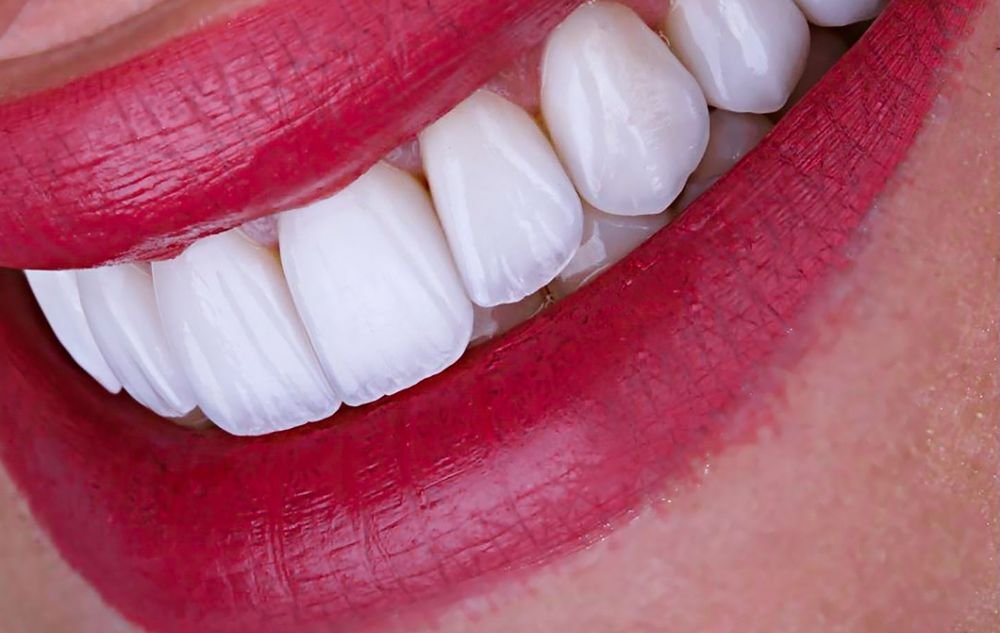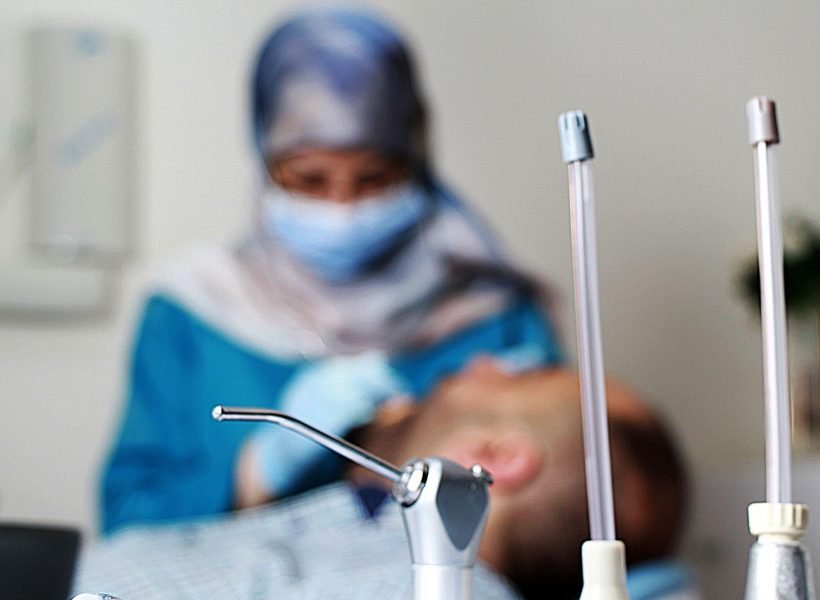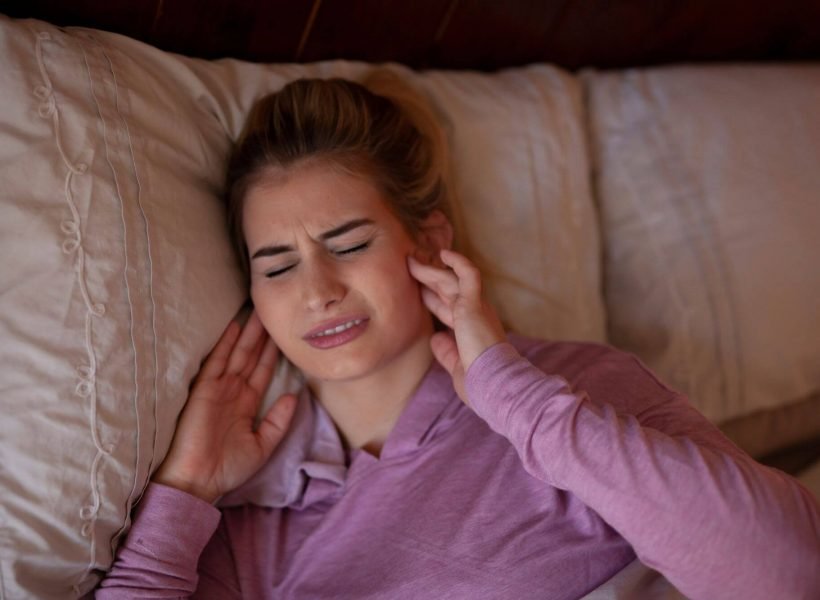

Camellia Polyclinic is where patients come to educate and empower themselves to take ownership of their dental health and beautiful smiles.
Our Location
- Michel Zakhour St., Beirut, Lebanon
- info@camelliapolyclinic.com
- +961 71 567 894
- Mon - Sat 09:00 AM - 06:00 PM
Social Media
TMJ Disorders – Symptoms and Causes
Camellia
November 5, 2022

The temporomandibular joint (TMJ) is the hinge connecting the lower jaw to the skull. It allows the jaw to move up and down and side to side so we can talk, chew, and yawn. When this joint is not working correctly, it can cause various problems, including pain, clicking or popping sounds, and difficulty moving the jaw. TMJ disorders are relatively common, affecting about 10 million adults in the United States. Women are more likely than men to develop TMJ disorders, and they are also more likely to experience chronic pain as a result.
There are many possible causes of TMJ disorders, including clenching or grinding your teeth (bruxism), arthritis, joint dislocation, and jaw trauma. However, in many cases, the exact cause is unknown.
Treatment for TMJ disorders often includes self-care measures such as eating soft foods and avoiding chewing gum. You may also be prescribed medication to help relieve pain and inflammation. In some cases, surgery may be necessary. If you think you may have a TMJ disorder, it’s important to see your dentist or doctor so that they can properly diagnose you.
Tenderness at the Joint
There are many different types of TMJ disorders, but one of the most common is tenderness at the joint. This can be caused by a number of things, including arthritis, misalignment of the teeth, or even clenching and grinding your teeth. If you have tenderness at the joint, it’s essential to see your dentist or doctor so they can determine the cause and recommend treatment.
Clicking Sounds from your Jaw
If you’re hearing clicking sounds from your jaw, it’s likely due to a TMJ disorder or an occlusion problem. Both conditions can be painful and disruptive, so seeking treatment as soon as possible is essential.

TMJ disorders are caused by jaw misalignment, which can lead to many problems, including pain, clicking sounds, and difficulty chewing. Occlusion problems, on the other hand, are caused by teeth that don’t fit together properly. This can also cause pain, clicking sounds, headaches, and migraines.
Treatment for TMJ disorders and occlusion problems will vary depending on the severity of the condition. In some cases, simple at-home treatments like ice packs and over-the-counter pain medication may be enough to provide relief. However, more severe cases may require surgery or more invasive treatments.
Persistent Headaches
There are many different types of headaches, and a number of different factors can cause persistent headaches. For example, if you have constant headaches, you must see a doctor to rule out any serious underlying causes.
One possible cause of persistent headaches is TMJ disorders. TMJ stands for temporomandibular joint, and these disorders can cause pain in the jaw, face, head, and neck. Occlusion problems can also cause persistent headaches. Occlusion refers to the way your teeth fit together when you bite down. If your teeth are not meeting correctly, it can strain your jaw and face muscles, leading to headaches.

If you have persistent headaches, some treatments can help. For example, pain medication can help to relieve the pain temporarily. Physical therapy or massage may also help to reduce muscle tension and improve the range of motion in the jaw. In some cases, surgery may be necessary to correct underlying problems with the temporomandibular joint or occlusion.
Pain in the Jaw Muscles
Pain in the jaw muscles is a common symptom of TMJ disorders and can be caused by several factors. The most common cause of muscle pain is clenching or grinding of the teeth, which puts pressure on the muscles and leads to inflammation. Other causes of muscle pain include arthritis, misalignment of the teeth, or an injury to the jaw. Treatment for muscle pain depends on the underlying cause and may consist of over-the-counter medication, physical therapy, or surgery.
Inadequate Sleep
There are a variety of things that can cause inadequate sleep, but one of the most common is TMJ disorders. TMJ disorders can cause a person to wake up feeling unrested and lead to further problems like headaches and jaw pain. Occlusion problems can also cause inadequate sleep. This is when the teeth do not come together correctly when you bite down, which can cause a person to clench or grind their teeth at night. This can lead to headaches, neck pain, and even ear pain. If you are having trouble sleeping, it is important to see your dentist to find out if you have any of these problems.
At Camellia Polyclinic, Dr. Racha Farhat and her team provide a wide range of dental services to patients in Beirut, Lebanon. We are committed to providing the highest quality of care possible, and our team of experienced dentists and dental hygienists is dedicated to providing each and every one of our patients with the individualized attention they deserve.
We offer a wide variety of dental services, including general dentistry, teeth whitening, implants, veneers, orthodontics, and more. We also offer a variety of payment options to make our services affordable for everyone.
If you’re looking for quality dental care in Beirut, Lebanon, look no further than Camellia Polyclinic!
Recent Post



Don't Hesitate To Contact Us
Get a consultation now and take the next step toward your new smile! We offer Invisalign, dental crowns and bridges, and more.

